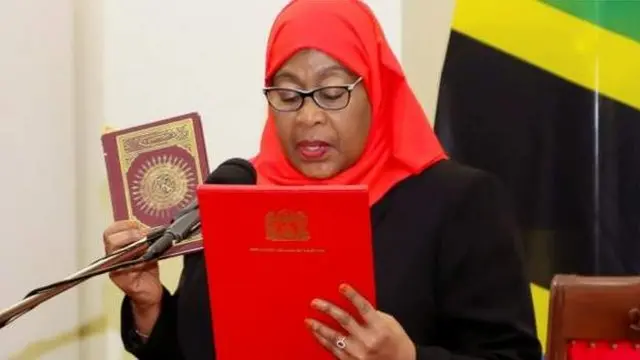Tanzanian President Samia Suluhu Hassan was officially sworn in for a second term in a ceremony held at a military parade ground in the capital, Dodoma. The event, closed to the public, was broadcast live on state-run TBC.
Samia’s re-election follows a vote declared on Saturday in which she reportedly won 98% of the votes. However, the election faced widespread criticism, with key opposition candidates either imprisoned or barred from participating. The Chadema party and other opposition groups have rejected the results, calling the poll a sham.
The election period was marred by violent protests across the country. Reports indicate that hundreds of people were killed or injured during clashes with security forces. The opposition claims that no fewer than 800 people lost their lives, while some diplomatic sources suggest at least 500 fatalities. The UN human rights office reported credible accounts of at least ten deaths in three major cities, though restrictions on information and a nationwide internet shutdown have made verification difficult.
In her victory speech, President Samia described the election as “free and democratic” and labeled the protesters as “unpatriotic.” Meanwhile, international observers have expressed concern about the transparency of the process and the severity of the post-election violence.
Authorities have sought to downplay the scale of unrest, and access to independent reporting has been limited. Despite the controversy, the government proceeded with the inauguration, signaling the start of Samia’s second term amid heightened domestic and international scrutiny.
This latest election raises critical questions about Tanzania’s political landscape and the state of democracy in the country. Human rights groups continue to call for independent investigations into the post-election violence and accountability for the victims.
President Samia’s second term begins under challenging circumstances, balancing promises of governance with ongoing concerns over political freedoms and public safety.

